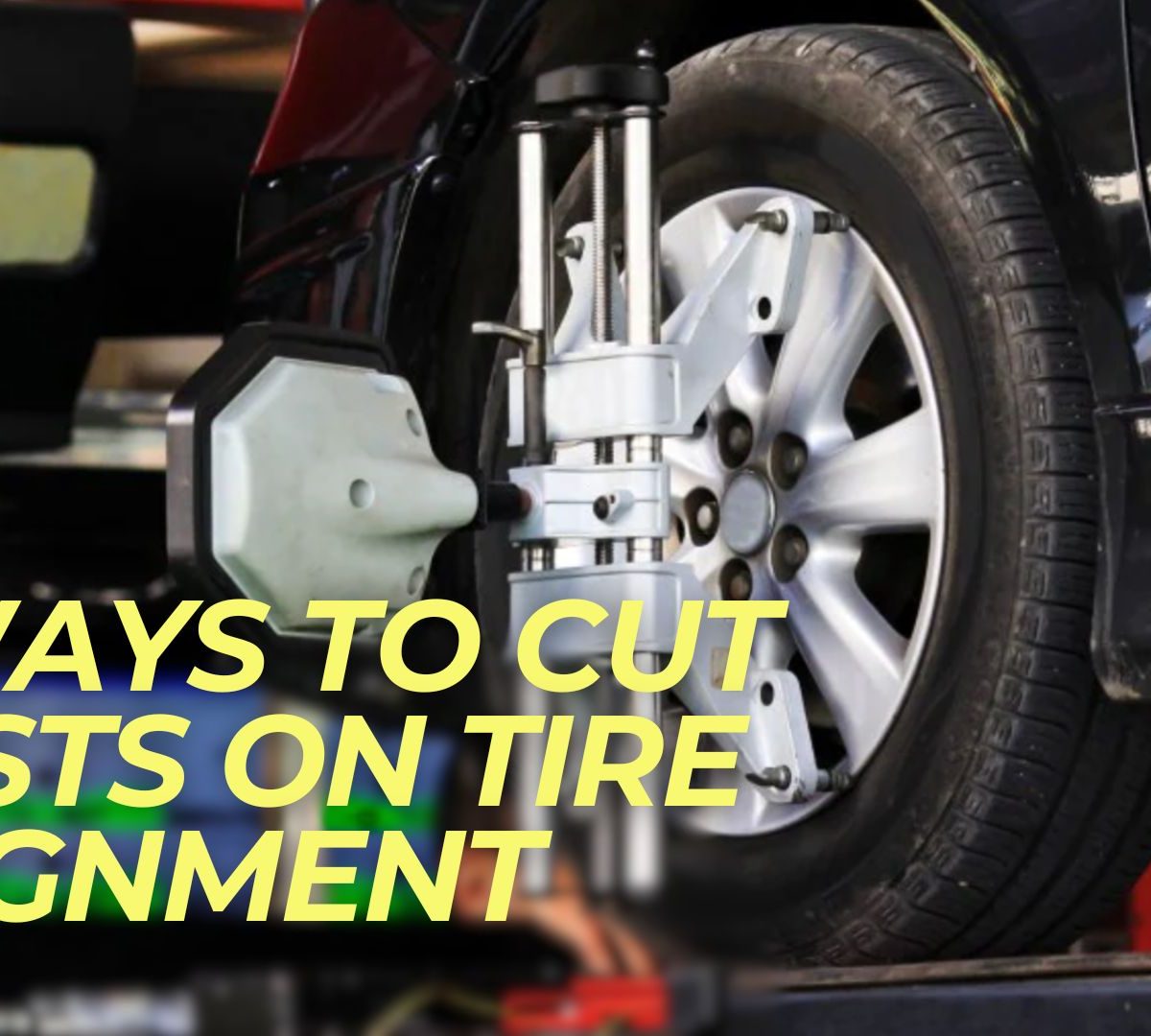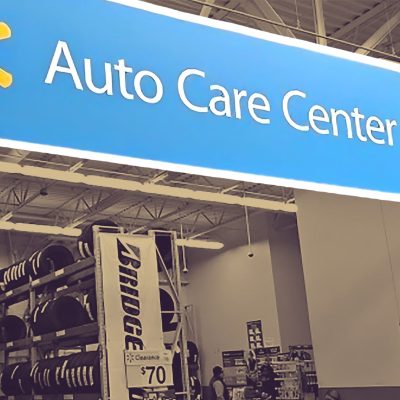Are you tired of spending too much money on tire alignments? You’re not alone.
Many vehicle owners face the same problem: alignment services can be expensive. However, there are ways to cut costs without compromising your vehicle’s performance and safety.
In this blog post, we’ll explore five practical strategies to help you save money on tire alignments.
From understanding the importance of regular maintenance to comparing prices and taking advantage of special offers, these tips will guide you in making smart decisions for your vehicle and your wallet.
Whether you’re a seasoned driver or a new car owner, these cost-cutting methods will ensure you get the most value from your tire alignment services.
Let’s dive in and discover how you can keep your vehicle running smoothly while keeping more money in your pocket.
How Much Does a Tire Alignment Cost?
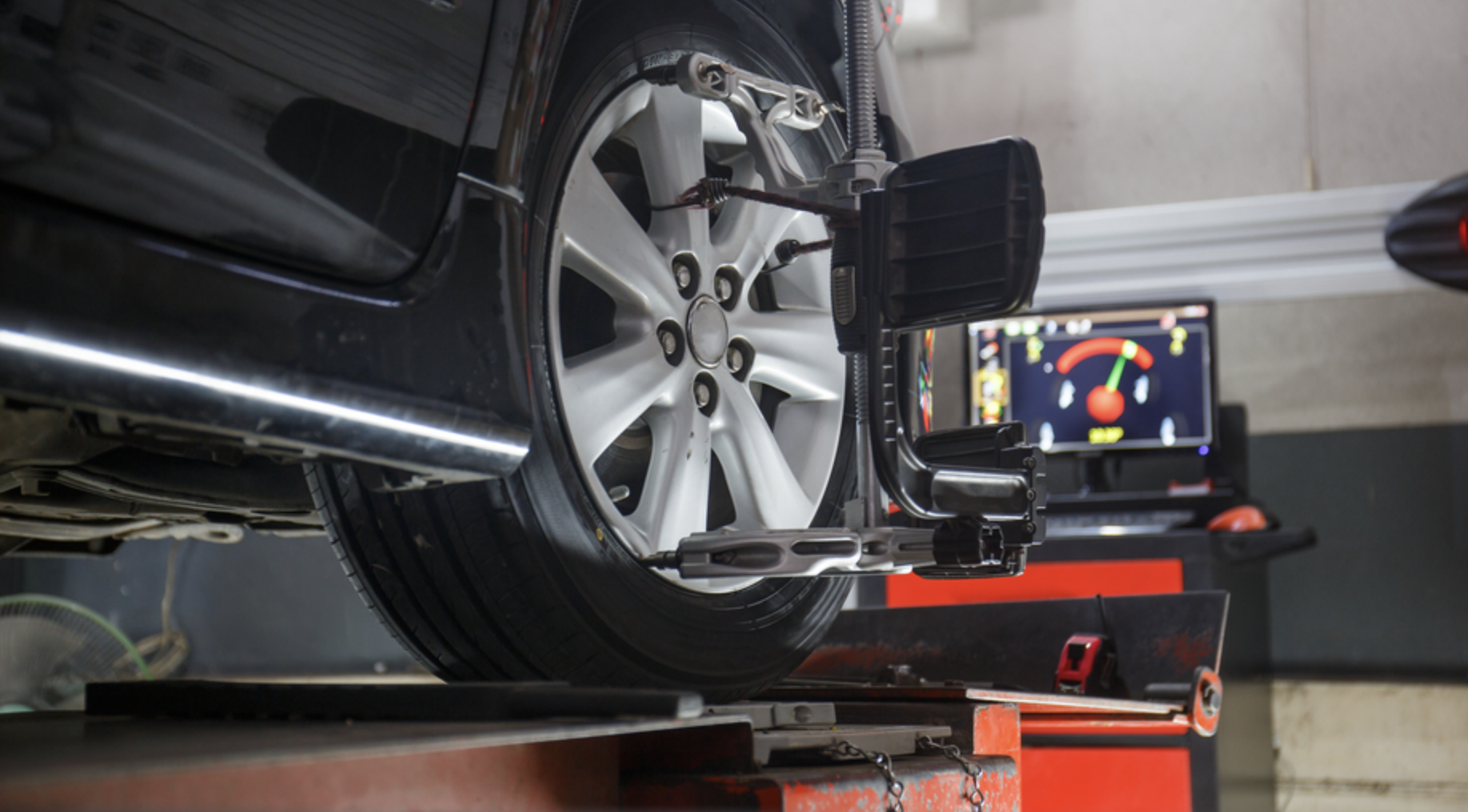
| Alignment Type | Average Cost Range |
|---|---|
| Two-Wheel Alignment | $50 – $75 |
| Four-Wheel Alignment | $100 – $175 |
Factors Influencing Cost
1. Type of Alignment
There are two main types of tire alignments: two-wheel (front-end) and four-wheel alignments. Understanding the difference between these options can help you make an informed decision and potentially save money.
- Two-wheel alignments, also known as front-end alignments, adjust only the front wheels. This type of alignment is suitable for vehicles with a solid rear axle, as the rear wheels are not adjustable.
- On the other hand, four-wheel alignments involve adjusting all four wheels to ensure they are correctly angled and aligned with each other. This type of alignment is necessary for vehicles with independent suspensions, which allow each wheel to move separately.
To determine which type of alignment your vehicle needs, consult your owner’s manual or ask a trusted mechanic.
However, opting for the appropriate alignment type can help you avoid unnecessary expenses while ensuring your vehicle’s proper functioning.
2. Vehicle Type
The make and model of your vehicle can significantly impact the tire alignment cost.
Moreover, some luxury or performance vehicles require specialized procedures due to their unique suspension systems or advanced technology, which can increase the price of the service.
For example, a tire alignment for a standard sedan might cost around $100, while the same service for a high-end sports car or luxury SUV could cost $200 or more.
This price difference is due to the extra time, expertise, and specialized equipment needed to align these vehicles properly.
When budgeting for a tire alignment, consider your vehicle’s make and model and research your car’s expected costs. This information can help you plan and avoid any surprises regarding the final bill.
3. Additional Services
During a tire alignment, your mechanic may recommend additional services to ensure your vehicle’s optimal performance and safety.
These services can affect the overall cost of your visit but may be necessary for the long-term health of your vehicle.
- One common additional service is tire rotation, which involves moving the tires to different positions on the vehicle to promote even wear. Tire rotations typically cost between $20 and $50 and can help extend the life of your tires, saving you money in the long run.
- Another potential service is a suspension check, which assesses the condition of your vehicle’s suspension components. If any parts are worn or damaged, they may need to be repaired or replaced before the alignment can be performed. Suspension repairs can range from $100 to $1,000 or more, depending on the extent of the damage and the specific components involved.
When discussing your tire alignment with your mechanic, ask about any additional services they recommend and their associated costs.
This transparency will help you make an informed decision and budget accordingly, ensuring you get the most value for your money while keeping your vehicle in top condition.
Different Ways to Cut Costs on Tire Alignment
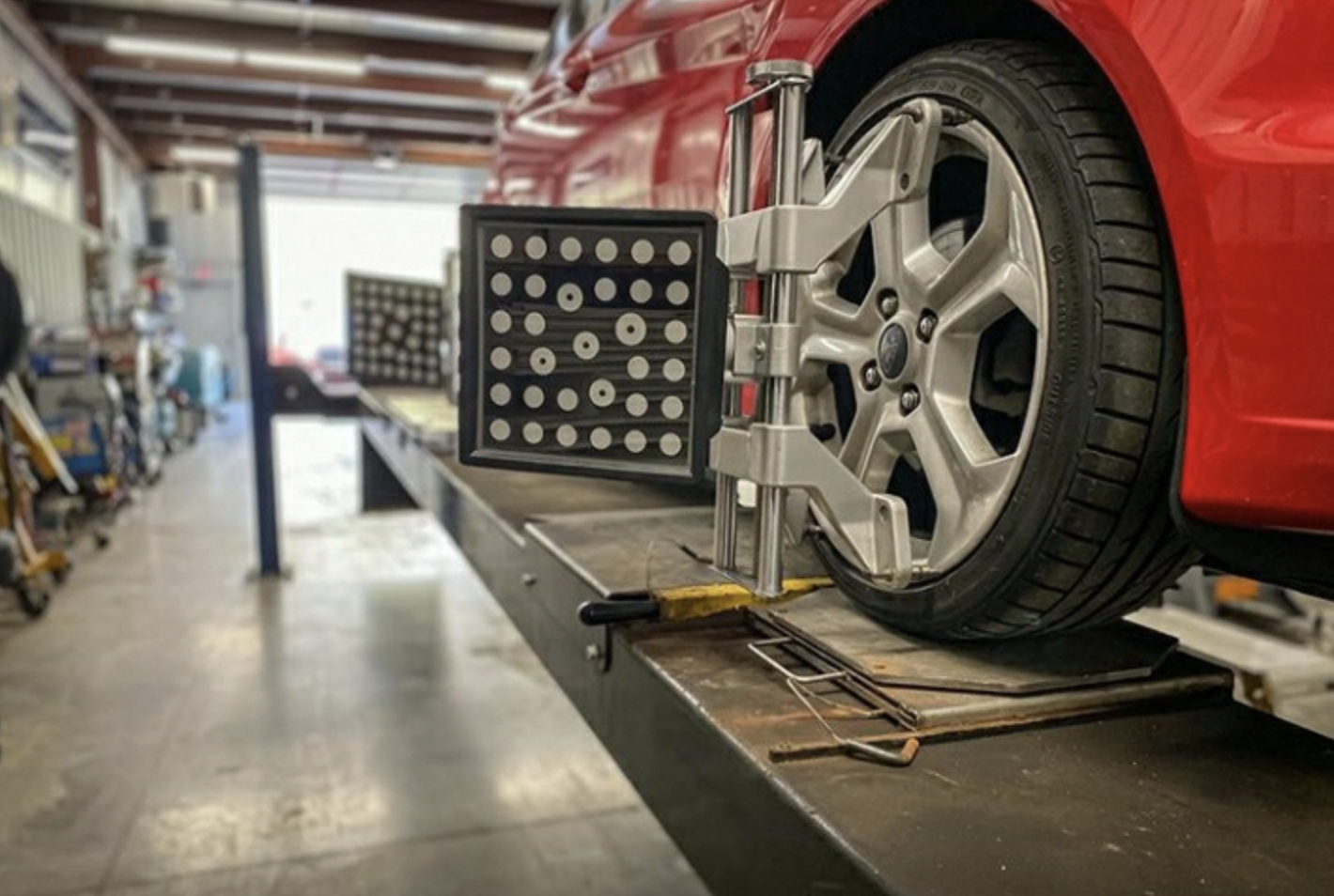
1. Better Fuel Efficiency
One of the most significant ways to cut costs on tire alignment is by improving your vehicle’s fuel efficiency.
When your wheels are properly aligned, your car experiences less resistance against the road, allowing it to move more smoothly and efficiently. This reduced resistance means your engine doesn’t have to work as hard, leading to better fuel economy.
Studies have shown that a vehicle with correctly aligned tires can improve fuel efficiency by up to 10%.
This may not seem like much, but these savings can add up significantly over time. By getting regular tire alignments, you’ll make fewer trips to the gas station, saving you money in the long run.
2. Improved Tire Lifespan
Another cost-saving benefit of proper tire alignment is the extended lifespan of your tires.
When your wheels are misaligned, your tires wear down unevenly, causing them to lose their tread more quickly. This uneven wear can lead to the need for premature tire replacement, which can be a costly expense.
By keeping your tires aligned, you ensure that they wear evenly, maximizing their lifespan. This can help you delay the need for new tires, saving you hundreds of dollars over the life of your vehicle.
Regular alignments, combined with proper tire rotation and inflation, can help your tires last up to their full potential, usually around 50,000 miles or more.
3. Reduced Risk of Costly Repairs
Misaligned wheels can stress your vehicle’s suspension and braking systems, causing them to wear out more quickly.
This added stress can lead to premature wear and tear, which may result in the need for expensive repairs down the line.
By maintaining proper alignment, you minimize the strain on these critical components, helping them last longer and perform better.
This, in turn, reduces the risk of costly repairs, such as replacing ball joints, tie rod ends, or even your vehicle’s entire suspension system.
Regular alignments can help you avoid these expensive fixes, ultimately saving you money in the long term.
4. Increased Resale Value
If you plan on selling your vehicle, regular maintenance, including tire alignments, can significantly impact its resale value.
Prospective buyers are often willing to pay more for a vehicle with a well-documented service history, as it demonstrates that the car has been properly cared for and is less likely to have hidden issues.
By keeping up with regular alignments and maintaining records of these services, you can showcase your vehicle’s excellent condition to potential buyers.
This can make your car more attractive, allowing you to command a higher price and ultimately putting more money in your pocket when it comes time to sell.
5. Safety
While the financial benefits of regular tire alignments are clear, it’s crucial not to overlook the safety aspects as well.
Properly aligned tires provide better handling, stability, and braking performance, which can help you avoid accidents and maintain control of your vehicle in various driving conditions.
Misaligned tires can cause your car to pull to one side, making it harder to steer and increasing the risk of losing control, especially in wet or slippery conditions.
Ensuring your tires are correctly aligned improves your vehicle’s overall safety, potentially avoiding accidents and the associated costs of vehicle repairs or insurance claims.
Investing in regular tire alignments saves you money in the long run and provides peace of mind, knowing that you’re driving a safer, more reliable vehicle.
How to Save on Tire Alignment Services?
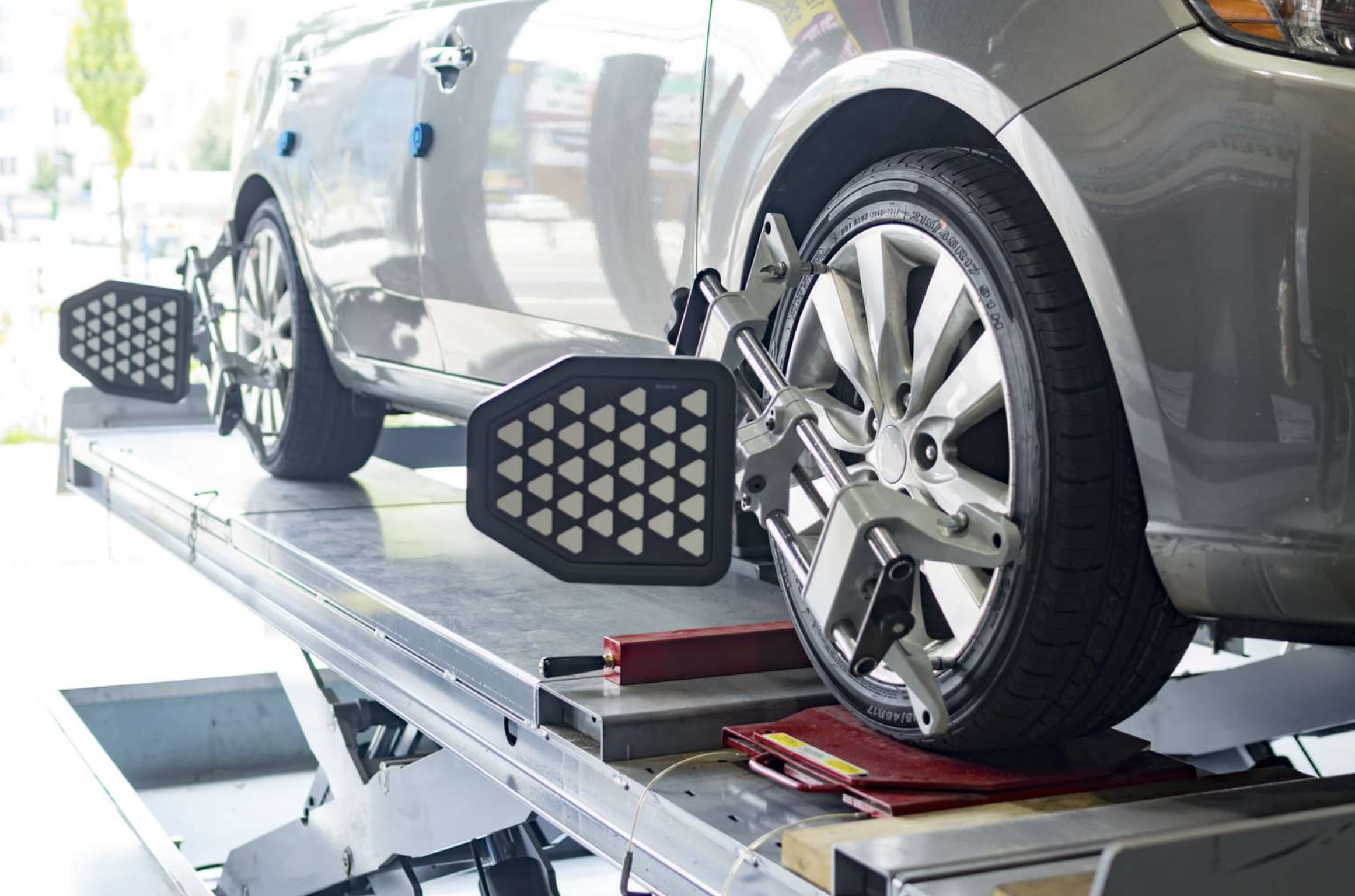
1. Regular Checks and Maintenance
One of the most effective ways to save on tire alignment services is by staying on top of regular vehicle inspections and maintenance.
By catching alignment issues early, you can prevent more severe misalignment from developing, leading to higher costs down the road.
Make sure to have your alignment checked at least once a year or every 12,000 miles, whichever comes first.
This proactive approach can help you identify and address minor issues before they escalate into serious problems requiring expensive repairs.
2. Comparison Shopping
When it comes to finding the best deal on tire alignment services, it pays to shop around. Gather quotes from multiple service providers in your area, as prices can vary significantly from one shop to another.
However, it’s essential to look beyond the cost when deciding. Consider the quality of service, the experience of the technicians, and the shop’s reputation.
While a lower price may be tempting, it’s crucial to ensure that you’re getting reliable, high-quality service to avoid potential issues down the line.
3. Lifetime Alignment Packages
For those who drive frequently or on rough roads, investing in a lifetime alignment package can be a cost-effective solution.
These packages offer unlimited alignments for a flat fee, providing long-term value and convenience.
By opting for a lifetime alignment package, you can save money on individual alignment services over the life of your vehicle.
This is particularly beneficial for drivers who are hard on their tires or live in areas with poor road conditions, as they may require more frequent alignments to keep their vehicles in optimal condition.
4. Align with Tire Replacement
When it’s time to replace your tires, consider scheduling an alignment check simultaneously.
This strategy offers a dual benefit: ensuring that your new tires wear evenly from the start and potentially saving money by bundling services.
Many tire shops and service centers offer discounts or package deals when you combine tire replacement with alignment services.
By taking advantage of these offers, you can save money while ensuring your vehicle is in top condition.
5. DIY Inspection for Signs
While professional inspections are crucial for maintaining proper alignment, you can also perform basic visual and performance checks to spot signs of misalignment.
By learning to identify these signs, you can seek professional service before minor issues become major expenses.
Some Simple Things to Look out For Include:
- Uneven Tire Wear: Check your tire tread for signs of uneven wear, such as balding on one side or in specific spots.
- Vehicle Pulling: When driving on a straight, flat road, pay attention to whether your vehicle pulls to one side.
- Steering Wheel Vibration: Feel for any unusual vibrations in your steering wheel, which can indicate misalignment.
- Off-Center Steering Wheel: Check if your steering wheel is centered when driving straight. If it’s off-center, your alignment may need adjustment.
By performing these basic checks regularly, you can stay on top of your vehicle’s alignment needs and address any issues promptly, ultimately saving you money in the long run.
Conclusion
Last but not least, cutting costs on tire alignment doesn’t have to mean compromising the safety and performance of your vehicle.
By understanding the different types of alignments, considering your vehicle’s specific needs, and taking advantage of cost-saving strategies, you can keep your car running smoothly without breaking the bank.
Regular maintenance checks, comparison shopping, and bundling services are a few ways to save money on this essential service.
Most importantly, investing in proper tire alignment helps you avoid costly repairs down the road and ensures a safer, more comfortable driving experience for you and your passengers.
So, the next time you’re due for an alignment, keep these tips in mind and take action to protect your vehicle and your wallet.
Your car (and your bank account) will thank you!


